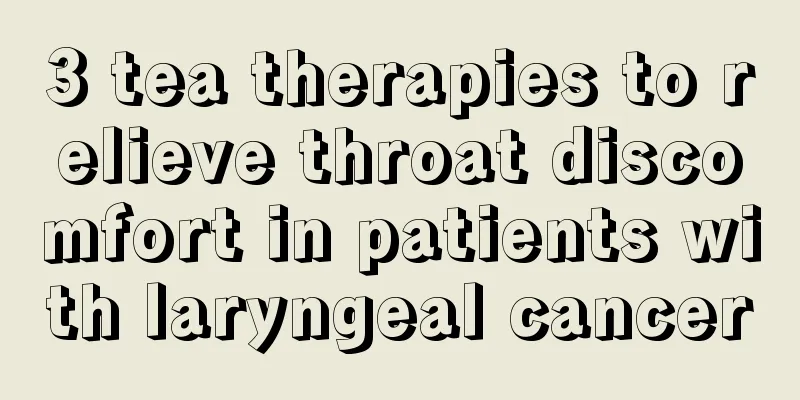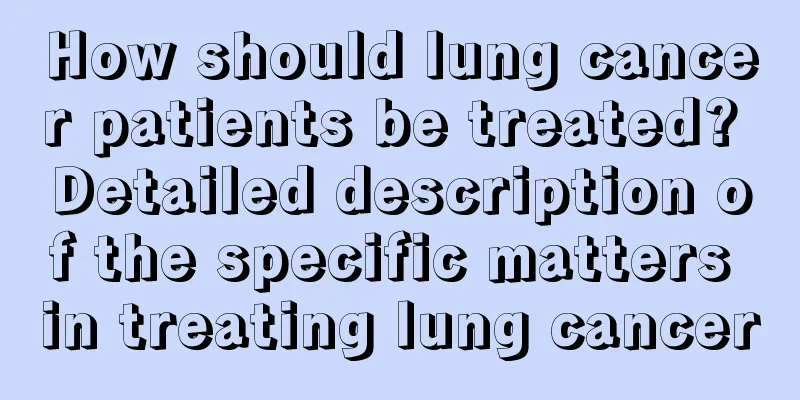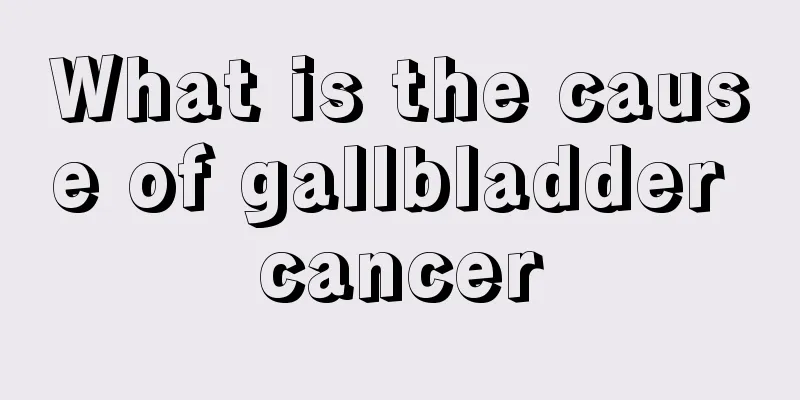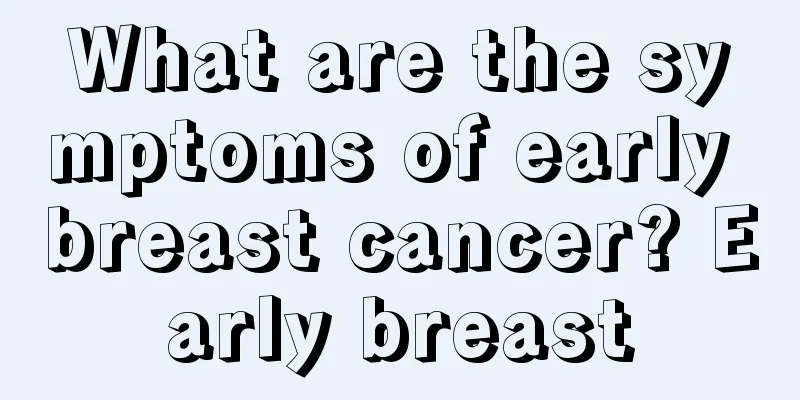How does liver cancer come about? What are the conventional treatments for liver cancer?
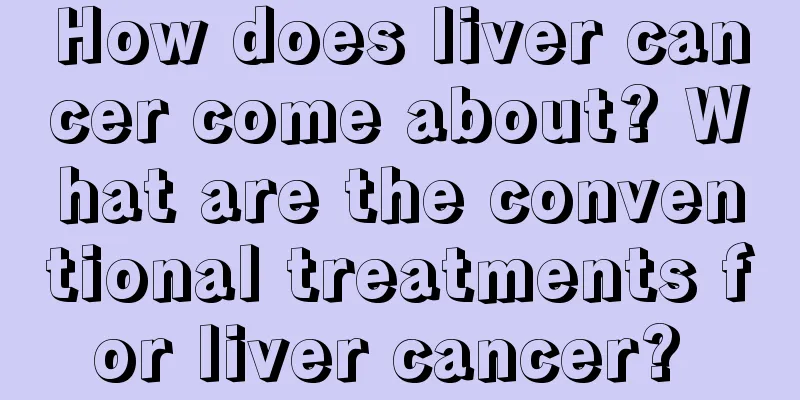
|
my country is a country with a high incidence of liver cancer. Every year, 47% of liver cancer cases in the world occur in my country. At present, liver cancer ranks fourth in the incidence of malignant tumors in my country, but ranks second in the mortality rate. It is truly the "king of cancer". At the same time, due to various factors such as my country's social economy and medical conditions, 65% of patients are already in the middle or late stages when liver cancer is discovered. It is an unresectable liver cancer, and the treatment effect is often poor, and the life expectancy is not long. However, in recent years, with the application of some new methods for treating liver cancer, we have tried to apply individualized, multi-dimensional, and holistic systemic treatment to actual clinical treatment work, and found that many patients with middle and late stage liver cancer still have the opportunity to undergo radical surgery. Now I will give a brief introduction. (SungH,FerlayJ,SiegelRL,etal.Globalcancerstatistics2020:globocanestimatesofincidenceandmortalityworldwidefor36cancersin185countries[J].CACa ncerJClin, 2021,71(3):209-249[1]Latestglobalcancerdata:Cancerburdenrisesto19.3millionnewcasesand10.0millioncancerdeathsin2020[J].IARC.2020.). How does liver cancer come about? The etiology and pathogenesis of liver cancer are not fully understood. It is currently believed that its onset is a complex process with multiple factors and steps. Epidemiological and experimental research data show that hepatitis B virus (HBV) and hepatitis C virus (HCV) infection, aflatoxin, drinking water pollution, alcohol, cirrhosis, hormones, nitrosamines, trace elements, etc. are all related to the onset of liver cancer. However, in my country, 90% of liver cancers are associated with hepatitis B virus (HBV) infection. Generally speaking, various carcinogenic factors will affect the DNA of liver cells, causing abnormal growth of liver cells and eventually cancer. For example, hepatitis B virus DNA can directly insert into the DNA of liver cells, leading to cancer. Another example is aflatoxin, which can destroy the tumor suppressor genes of cells, thereby causing abnormal growth of liver cells and eventually forming liver cancer. What are the conventional treatments for liver cancer? Ask the doctor online? Treatments for liver cancer mainly include surgical resection, liver transplantation, local tumor ablation, radiotherapy, transcatheter hepatic arterial chemoembolization, and systemic treatments based on immunity and targeted therapy that have emerged in recent years. Among them, surgical resection of liver cancer is a recognized treatment method that may achieve radical effects. Major liver disease treatment centers in the world all use liver cancer resection as the first-line treatment option for early-stage patients. Liver transplantation is more effective than surgical resection or radiofrequency ablation for patients with severe cirrhosis and tumors less than 5 cm in diameter. However, liver transplantation currently faces problems such as liver source shortage, long waiting time for liver donors, and high costs. Radiofrequency ablation of liver cancer has a comparable efficacy to surgical resection for liver cancer with a tumor diameter of less than 3 cm. For patients with multiple tumors or tumors with a diameter greater than 5 cm, surgical resection provides greater benefits. Transcatheter arterial chemoembolization is currently generally used in patients who cannot undergo radical surgery. For resectable early liver cancer and transformed cases, there are currently many studies on the use of preoperative transcatheter arterial chemoembolization to improve surgical outcomes. Immunotherapy and targeted therapy are emerging treatment methods in recent years, and have achieved encouraging results in clinical practice. Under normal circumstances, the immune system can identify and eliminate tumor cells in the human body, but tumor cells can adopt different strategies to survive and grow, making it impossible for the body's immune cells to recognize and kill tumor cells, thus leading to the formation and growth of tumors. In 2018, Professor James and Professor Honjo won the Nobel Prize in Physiology for their pioneering contributions to tumor immunotherapy. The so-called targeted therapy is to design corresponding therapeutic drugs at the cellular and molecular level for the identified carcinogenic sites (the site can be a protein molecule inside the tumor cell or a gene fragment). When the drug enters the body, it will specifically select the carcinogenic site to combine and act, so that the tumor cells cannot grow and die, without affecting the normal tissue cells around the tumor. Therefore, molecular targeted therapy is also called "biological missile". With the development of molecular biology and further understanding of the pathogenesis of liver cancer at the cellular and molecular levels, tumor targeted therapy has entered a new era. The targeted field has made rapid progress and achieved good results in clinical practice. How to convert mid- to late-stage liver cancer into surgery? Ask the doctor online The concept of conversion refers to the use of local, systemic or comprehensive treatment to reduce the tumor stage, thereby converting an unresectable tumor into a resectable one. Unlike preoperative neoadjuvant therapy, the main purpose of conversion therapy is to achieve a state from unresectable to resectable, while preoperative neoadjuvant therapy is mostly to further improve the prognosis of resectable patients. Currently, it is more mature in the treatment of breast cancer and colorectal cancer, while conversion therapy for liver cancer is still in the exploratory stage and is a hot topic of current research. There have been a small number of reports of successful liver cancer transformation cases internationally since the 1970s. The earliest report of transformation in my country was in the 1990s, but these were sporadic case reports and there was no systematic large-scale research. In recent years, with the enhanced understanding of the occurrence and development of liver cancer and the advancement of treatment technology, some medical centers at home and abroad have attempted transformative treatment of liver cancer. Current data show that the conversion success rate of traditional liver cancer treatment based on transcatheter hepatic arterial chemoembolization is about 10%, which is not high. With the development of clinical applications of immunotherapy drugs and targeted drugs, we have also conducted some explorations in the transformational treatment of liver cancer and achieved encouraging results. Our method is to use interventional therapy based on transcatheter hepatic arterial chemoembolization, combined with the latest immunotherapy plus targeted therapy. Because immune escape plays a major role in the occurrence and development of liver cancer, liver cancer is a dominant cancer type for immunotherapy. Combined use of targeted drugs can promote the normalization of tumor blood vessels, reprogram the immune microenvironment, enhance anti-tumor responses, and achieve a dual effect of inhibiting tumor growth. In recent years, despite the rapid development of liver cancer diagnosis and treatment technology, more than 60% of liver cancer patients still miss the best time for surgery. Liver tumor resection is still a means to achieve better results. For mid-to-late stage unresectable liver cancer, a multidisciplinary diagnosis and treatment model consisting of liver surgery, interventional medicine, radiotherapy, hepatology, oncology, and radiology is needed to develop an individualized conversion therapy strategy for the patient and accurately determine the timing of surgery after conversion therapy, thereby improving the success rate of conversion surgical resection. In addition, the combination of multiple treatment methods, such as interventional therapy combined with immunotherapy and targeted therapy, will achieve a breakthrough in the transformative treatment of liver cancer. The app brings together more than 500 top-level doctors and 10,000 chief physicians nationwide, providing 24-hour real-time online medical consultation! In the app, you don’t need to search for popular science knowledge from other uncertain sources on search engines. There are tons of expert videos! Authoritative, professional and reliable! ——Experts around you! |
Recommend
Cost of early treatment of ovarian tumors
The ovaries are important reproductive organs for...
Rib hyperplasia and local bulging
Bone hyperplasia is a symptom of human bone aging...
Sinus tachycardia
In life, it is very important to protect your own...
What to do if my butt hurts when going to the toilet
If you feel pain in your buttocks when going to t...
Why is breast cancer basically painless and itchy?
Why is breast cancer basically painless and itchy...
Causes and treatments of cervical cancer
Cervical cancer is a common malignant tumor in gy...
How long can you live if primary liver cancer metastasizes to the lungs
If lung metastasis is difficult to control and th...
What is the reason for a bloated belly
When eating, you should pay attention to the shel...
What are the symptoms of gastrinoma?
Gastrinoma is similar to ulcer disease, but it la...
What is the cause of capillary rupture
If capillary rupture occurs on the limbs, the imp...
Can you drink the lotus leaves you dried yourself?
The lotus leaves that you have dried yourself can...
What to eat to prevent lymphoma
We know that people nowadays are under great pres...
What to do if your eyes are dry and painful
Dry and swollen eyes are very common in daily lif...
My eyes are rubbed and there is no foreign body
Eyes are an important part of our body. When we a...
What are the means of checking lung cancer? There are two methods
There are many ways to check lung cancer, such as...
